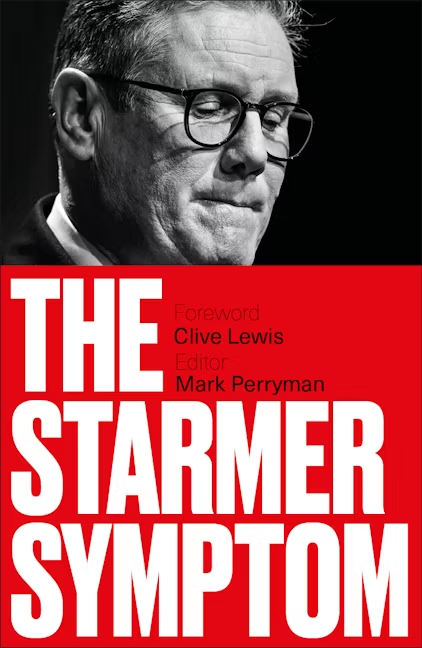Uncategorized
Backing Fair Votes and Trust in Our Democracy
The way we elect our representatives matters. In a representative democracy like ours, any change to the voting system has to be driven through Parliament and that means building real support among MPs. That is why the work of the All-Party Parliamentary Group for Fair Votes is so important. Over the past year, the APPG…
Read MoreViews on the Bill
The English Devolution and Community Empowerment Bill of 2025 has drawn a range of reactions from electoral reformers. Here you can read a recent article in Chartist magazine by Mary Southcott, Vice Chair of LCER, on reforming election laws, changing voting systems and rejecting non-PR approaches, and a response by Sandy Martin, Chair of LCER. …
Read MoreThe Starmer Symptom – Free extract
Below you can download an extract from Jess Garland’s chapter in The Starmer Symptom edited by Mark Perryman. Other contributors include Clive Lewis, Danny Dorling, Emma Burnell, Gargi Bhattacharyya, James Meadway, Hilary Wainwright, Jeremy Gilbert, Neal Lawson, Phil Burton-Cartledge and Yasmin Alibhai-Brown. Download your extract here Special Offer just £11.89 via LCER usual price £16.99…
Read MoreNext LCER Members’ Meeting – 16th September, 7pm (Zoom)
Join us as we discuss the forthcoming Elections Bill — and why it’s only truly transformative if it addresses the root problem: our broken voting system. While we welcome positive steps like votes at 16, automatic registration, and expanded voter ID options, the elephant in the room remains First Past the Post — a system…
Read MoreFair Elections in Focus: Parliament Holds Landmark Debate on Proportional Representation
On Thursday 30th January Parliament held a crucial debate on Proportional Representation – the first stand-alone debate on PR in the Chamber of the Commons for many years. This was a real game-changer and moves our campaign forward alongside the All Party Parliamentary Group for Fair Elections which initiated the debate. We need a National…
Read MoreVoting Reform: Labour’s Unfinished Business
Antony Taylor, Emeritus Professor of Modern British History, traces the history of support for electoral and constitutional reform within the Labour Party, and argues that this remains a major item of unfinished business for the Labour Party. The Labour Party, the Constitutional Reform Tradition, and Reform of the Voting System for Westminster Elections The argument…
Read MoreMPs with under a third of the vote: Lessons from Papua New Guinea
Democracy campaigners often point to the experiences of countries across the world which have switched from First Past the Post to a more proportional voting system: New Zealand, which made the change following a referendum; South Africa, which ditched FPTP when Apartheid was abolished; and Ireland and Cyprus, which made the change in the course…
Read MoreA little light reading
Since the general election on 4 July, media channels have been buzzing with calls for PR. In case you missed them, here are a few of the best. Professor Sir John Curtice, inews, 7 July 2024 >> First past the post is failing our democracy We should not be surprised that some are now arguing…
Read MoreLabour admits first past the post is flawed, and GE24 proves it. We need PR
Labour has gone directly from opposition to governing with a strong majority for only the second time in our party’s history. It’s an outstanding achievement – one that almost ten million people voted for – and we now have the opportunity, and obligation, to deliver the change the country so desperately needs. At the same…
Read MorePublic support for PR is at an all-time high
A new report from the National Centre for Social Research (NatCen) shows that public support for PR among adults in the UK is at an all-time high. The report, based on data from the British Social Attitudes Survey 2023, covers opinions on a range of issues, including social and political trust, populism and the impact…
Read More









